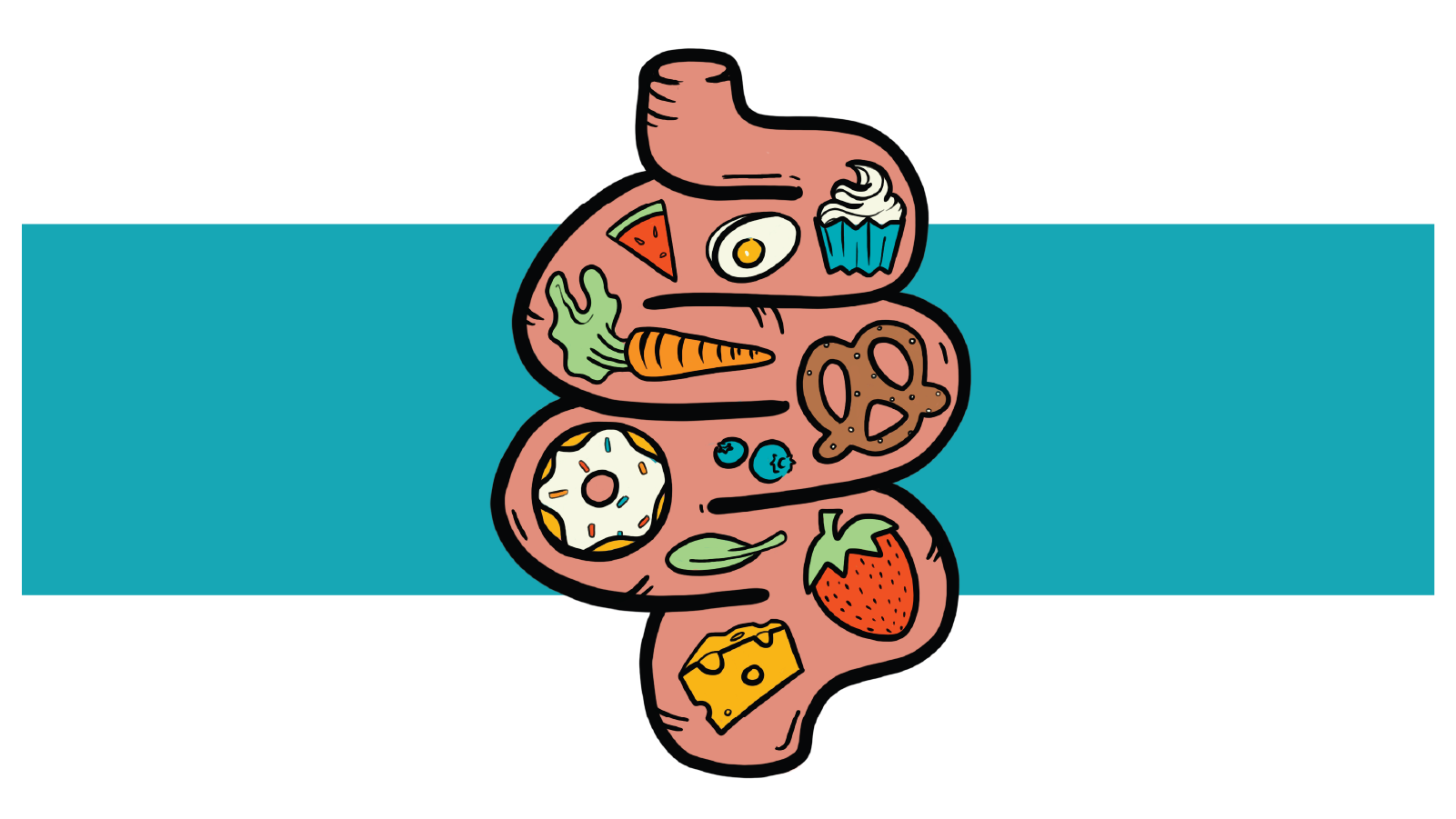We Have the (Healthy) Guts!
Life requires nourishment—nutrients from the food you eat and the liquids you drink. Nutrients include carbohydrates, proteins, fats, vitamins,...

Your digestive system is made up of the gastrointestinal (GI) tract and your liver, pancreas, and gallbladder. Your GI tract is a long, muscular tube that’s about 30 feet long and works with other parts of your digestive system to break food down into absorbable nutrients. When you eat something, your food takes a twisty trip that starts with being chewed up and ends with you going to the bathroom. A lot happens in between.
Digestion is important because your body needs nutrients from the food you eat and the liquids you drink to stay healthy and function properly. Nutrients include carbohydrates, proteins, fats, vitamins, minerals and water. Your digestive system breaks down and absorbs nutrients from the food and liquids you consume to use for important things like energy, growth and repairing cells.
With such a long GI highway, it’s common to run into bumps in the road. Fortunately, we’ve compiled some tips to keep you on tract.

Life requires nourishment—nutrients from the food you eat and the liquids you drink. Nutrients include carbohydrates, proteins, fats, vitamins,...

Managing Symptoms of Irritable Bowel Syndrome Irritable Bowel Syndrome (IBS) is a common gastrointestinal disorder characterized by symptoms such as...

Your Journey to Wellness Maintaining a healthy weight is a journey, not a destination. It involves a delicate balance of diet, exercise, and...